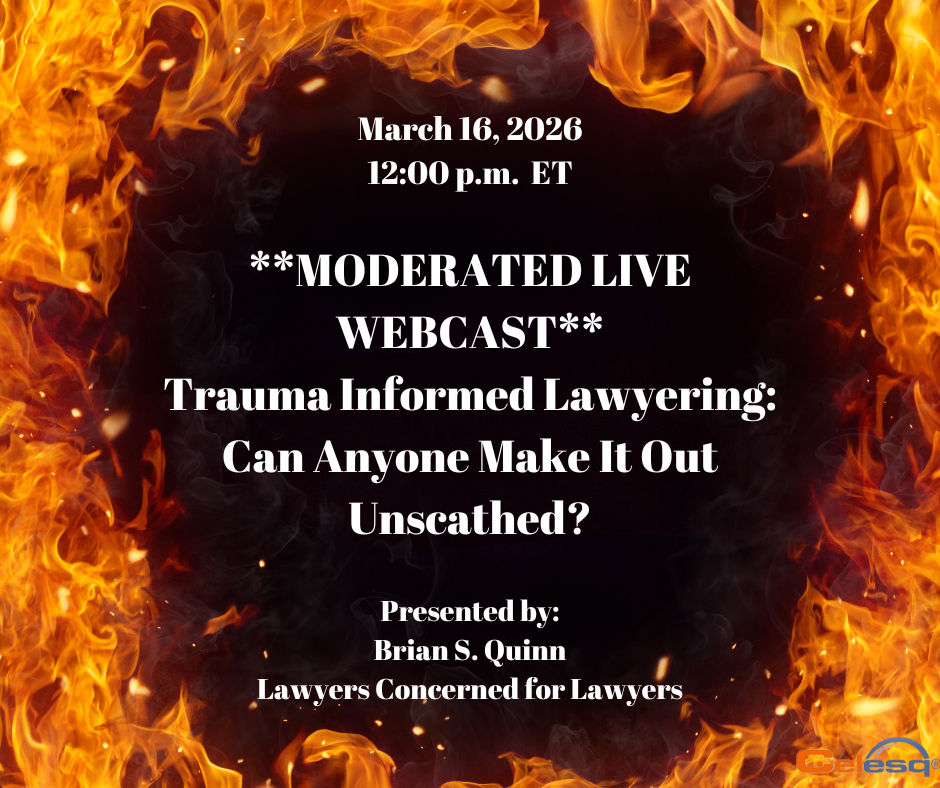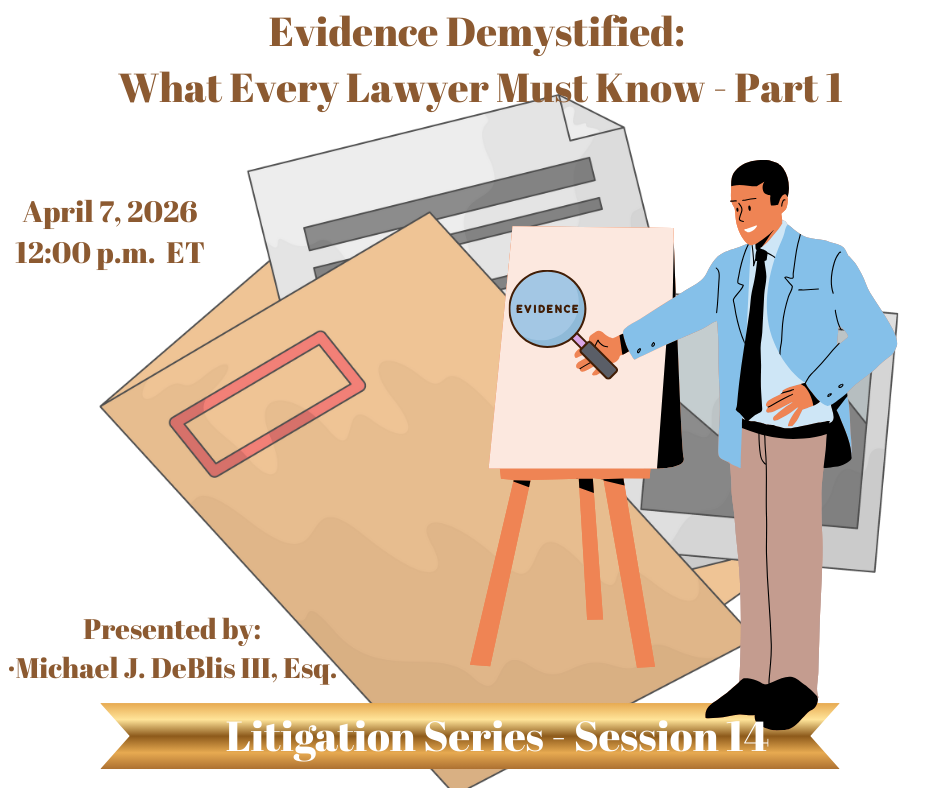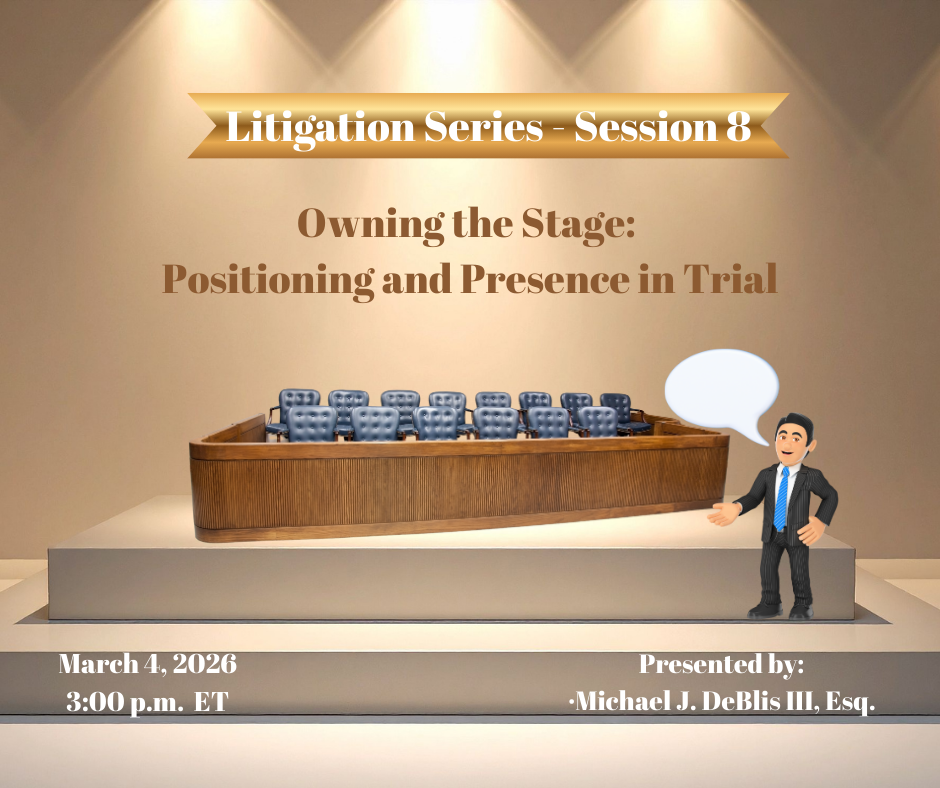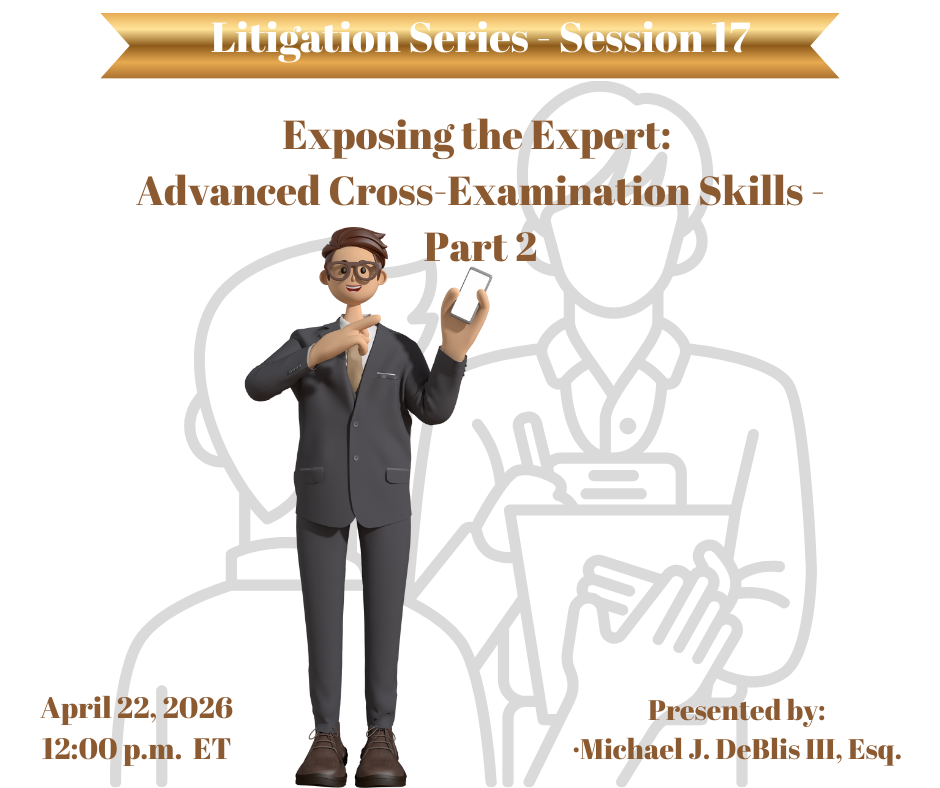
Exciting new series on “Voice, Body and Movement for Lawyers – How to connect with the jury and find Justice Through Dramatic Technique!”
Click here to find out more
When a company is doing well, creditors are happy and may not scrutinize common practices of management or of the board. But, when a company is in distress, you can expect a call from your lender requesting a meeting. And, if the company may be unable to pay creditors in full, creditors may conduct a forensic examination and pursue alternative sources of recovery- such as officers and directors.
1. When does incorporation not prevent personal liability for a company’s debts?
2. How should the board of directors operate when a company is in distress so as to avoid personal liability?
3. How should a company prepare for negotiations with its lenders when it needs relief under loan documents?
This program will examine best practices for management and the board to facilitate a successful financial restructuring and to avoid personal liability.

Attorneys hopefully recognize that, like many other professionals, their lives are filled to the bri...

Evidence Demystified Part 1 introduces core evidentiary principles, including relevance, admissibili...

This presentation explores courtroom staging—how movement, spatial awareness, posture, and pre...

This program focuses on overcoming the inner critic—the perfectionist, self?doubting voice tha...

United States patent law and the United States Patent and Trademark Office’s patent-related gu...

The landscape of global finance is undergoing a seismic shift as traditional assets migrate to the b...

This presentation teaches attorneys how to deliver memorized text—especially openings and clos...

Part 2 - This program will continue the discussion from Part 1 focusing specifically on cross?examin...

This program provides a comprehensive analysis of the Sixth Amendment Confrontation Clause as reshap...

Large World Models (LWMs)— the next generation of AI systems capable of generating...